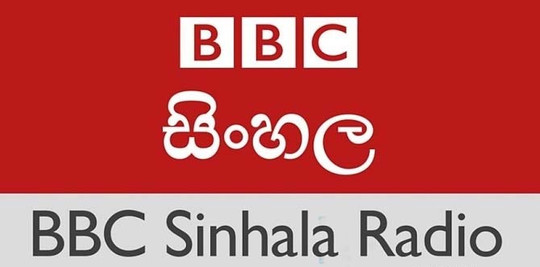The BBC made the urgent ruling to cease the broadcast from the end of November, stating that the closure would save £180,000 (242,000 USD) annually, despite original intentions to close the radio service from March 2021. Employees who were expecting to work till March, 2021, were informed of the decision on November 20, just ten days before the closure of the broadcast. The BBC has said it will continue its service via social media and online services; the Sinhala service was previously comprised of a radio broadcast with regular bulletins transmitted through partner stations across the island, and the deliverance of journalism through various social media platforms.
The decision impacts the right to information to free and impartial news in the local language of more than 833,000 listeners, representing around 7 per cent of the total Sinhala-speaking population of Sri Lanka. Although the BBC claims to be expanding the Sinhala broadcast service digitally through an online service and social media, the current reach of Sinhala Radio through these platforms remains at just 80,000 people, a much smaller audience compared to its number of radio listeners.
The closure has been widely criticized in both the UK and Sri Lanka. Three members of parliament in the UK tabled a motion named ‘Human Rights in Sri Lanka and the Relocation of the BBC Sinhala Service’, to highlight the need for continuity of the Sinhala radio broadcast at the time of political instability, increased human rights violations and degenerating security in Sri Lanka. The National Union of Journalists (NUJ) in the UK issued a press release on the same day urging the BBC to reconsider the decision. Likewise, media fraternity in Sri Lanka have been voicing their concerns against the decision.
The FMM Convenor, Seetha Ranjanee, said: “The decision to close the Sinhala radio broadcast by BBC at a time when Sri Lanka is going through the violation of media rights, press freedom and human right, is not appropriate. The FMM hopes that the BBC will reconsider their decision and continue Sandeshaya radio program.”
The FMETU General Secretary, Dharmasiri Lankapeli, said: “The impending closure comes at a crucial time when Sinhala audiences are increasingly deprived of accurate and independent information. We opine that this move deprives Sri Lankan people from the right to know the impartial and accurate news. We urge the BBC management to reconsider the decision.”
The IFJ said: “The Sinhala radio broadcast has earned a good reputation among the Sri Lankan population, providing 833,000 populations with accurate, balanced and credible local and international news in their local language. The proposed plan to conduct the Sinhala service online and via social media platform serves merely the urbanities and thereby deprives a large portion of the rural population from credible information in their native language. Therefore, the IFJ urges the BBC to reconsider its decision.”

